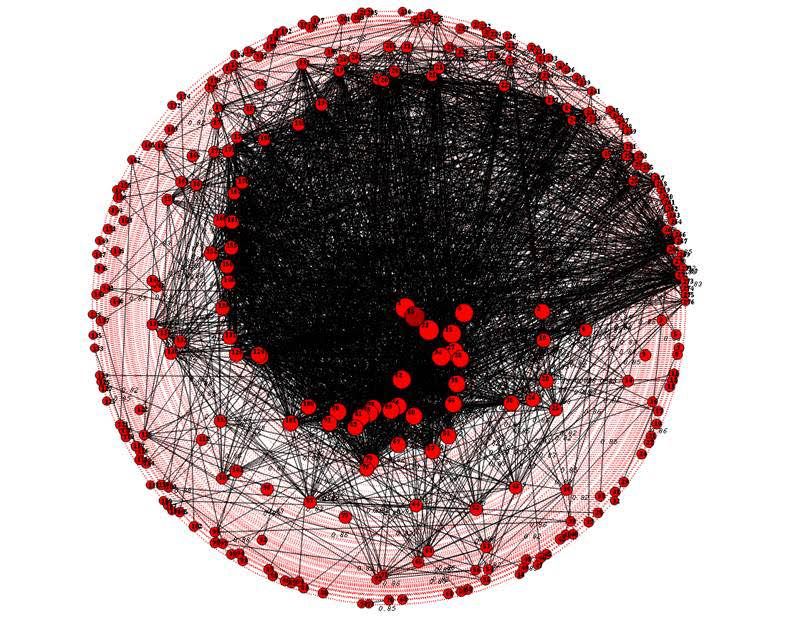Bulk compare fuzzy hashes for file objects using spamsum algorithm. Unlike out of the box ssdeep will compute everything in memory and on the fly enabling point and type bulk capability.
Rationale for the use of Fuzzy Hashing in archives: https://gist.github.com/ross-spencer/4c2579f4ad2991785485
Currently uses cgo version of ssdeep: https://godoc.org/github.com/dutchcoders/gossdeep
Usage: sscompare [-fuzzy] [-file1 ...]
Usage: sscompare [-fuzzy] [-string1 ...]
Usage: sscompare [-compare] [-file1 ...] [-file2 ...]
Usage: sscompare [-compare] [-string1 ...] [-string2 ...]
Usage: sscompare [-compare] [-hash1 ...] [-hash2 ...]
Usage: sscompare [-compute] [-dir ...] [OPTIONAL] [-all]
Output: [CSV] 'file1','hash'
Output: [CSV] 'score','hash1','hash2','string compare fail'
Output: [CSV] 'score','file1','file2','string compare fail','sha1 compare fail'
Usage of ./sscompare:
-all
[Optional] Output all files, including zero matches and duplicates.
-compare
Compare two hashes and return the percentage (%) familiarity.
-compute
Compare all file hashes and output all comparisons for a given directory.
-dir string
[Conditional] Directory to run a full 1:1 comparison against.
-file1 string
[Conditional] File or string to generate and/or compare a hash for.
-file2 string
[Conditional] File to compare file1 to.
-fuzzy
Generate a fuzzy hash for a file or string.
-hash1 string
[Conditional] Hash to run a comparison against. The needle.
-hash2 string
[Conditional] Hash to compare a hash1 to. The haystack.
-string1 string
[Conditional] File or string to generate and/or compare a hash for.
-string2 string
[Conditional] String to compare string1 to.
While this utilizes CGO there are still a handful of complications, including easy compilation on Windows. Instructions for Windows have not yet been created.
On Linux, compilation is much easier, but you might need libfyzzy, e.g.
sudo apt-get install libfuzzy2.2.13
or:
sudo apt-get install libfuzzy-dev
Those using graphfuzzy.py (below) require networkx, I recommend using PIP.
pip install networkx
To convert this tool to a native Golang version is trivial, only two functions need supporting in the Golang implementation of the fuzzy hash library. Writing, and Compare. And both can be dropped into the code here with minimal effort. Likely requiring simple casting of objects based on original Spamsum work. The issue with Spamsum is that it is not yet fit for production, and two bugs have been logged:
Analysis of short hashes Analysis vs. reference implementation
It is my goal to attempt to look at this library as soon as I have a free moment and if there seems a reasonable push to follow up with research. A native implementation would be nice.
GraphFuzzy see: 'graph-fuzzy/'
Utilise the output from sscompare in a tool like SocNetV by creating GraphML
python graphfuzzy.py --csv fuzzy-report.csv --score 0.5
** --score can be used to filter the report to return only values >= to the number (float) given
Usage:
usage: graphfuzzy.py [-h] [--csv CSV] [--score SCORE]
Convert results of a fuzzy hash computation to a network graph, GraphML.
Outputs using CSV filename with XML suffix.
optional arguments:
-h, --help show this help message and exit
--csv CSV, --results CSV
CSV export from sscompare tool.
--score SCORE Filter out results less than this match score.
Share your results with me! And let me know other tools that you've found useful for working with GraphML.
My first two results with SocNetV: GovDocs and OPF Corpus
Copyright (c) 2016 Ross Spencer
This software is provided 'as-is', without any express or implied warranty. In no event will the authors be held liable for any damages arising from the use of this software.
Permission is granted to anyone to use this software for any purpose, including commercial applications, and to alter it and redistribute it freely, subject to the following restrictions:
The origin of this software must not be misrepresented; you must not claim that you wrote the original software. If you use this software in a product, an acknowledgment in the product documentation would be appreciated but is not required.
Altered source versions must be plainly marked as such, and must not be misrepresented as being the original software.
This notice may not be removed or altered from any source distribution.
